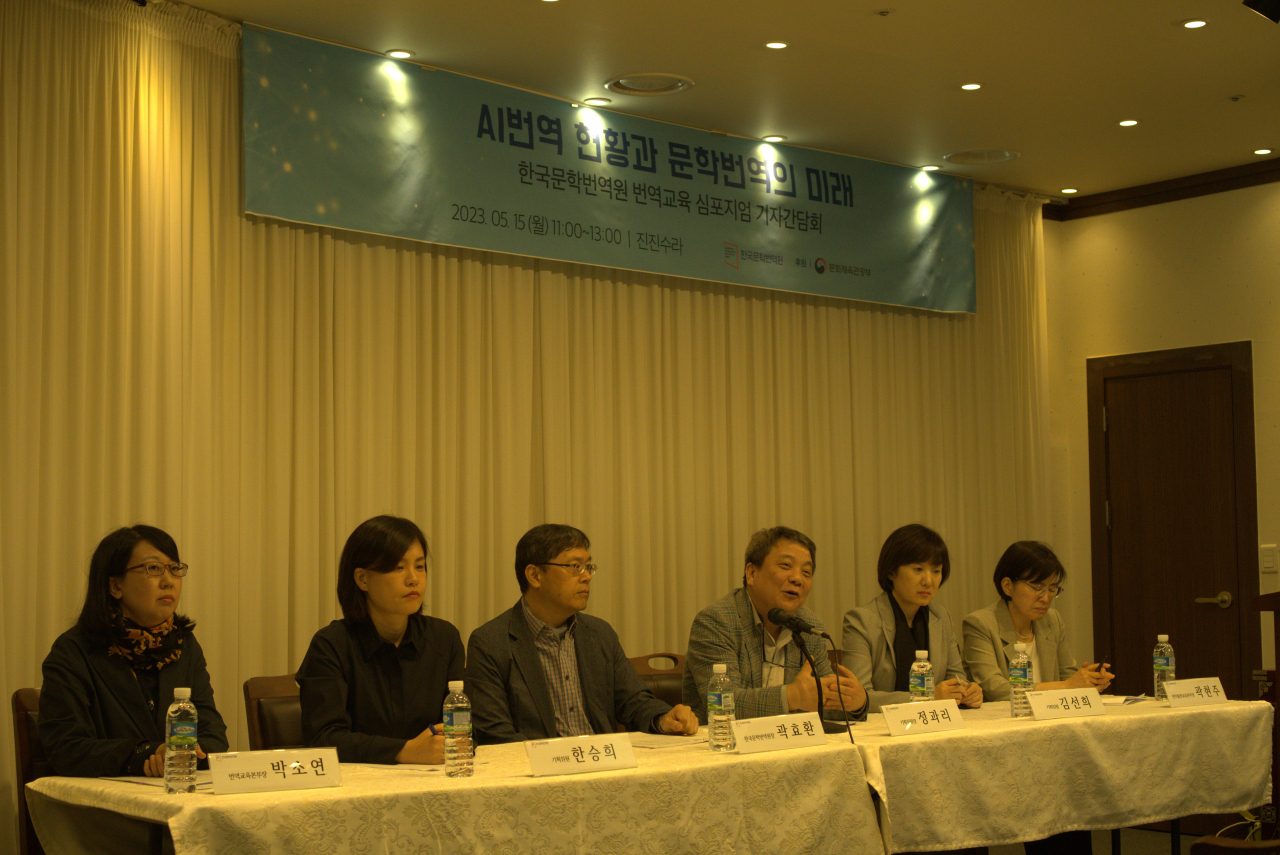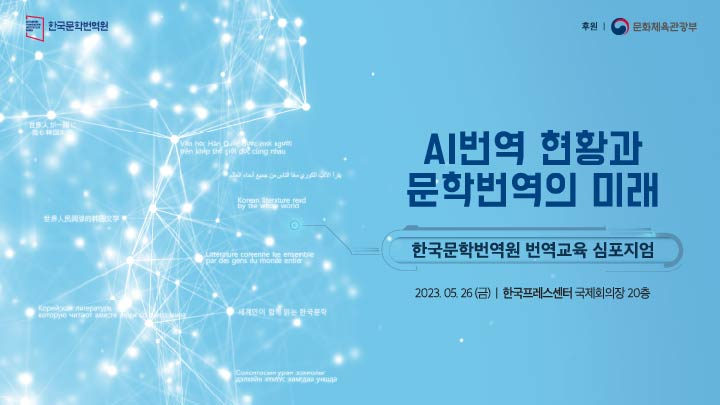 |
Professor Jung Gwa-ri (fourth from left) speaks at a press conference in Jongno, Seoul, Monday. Kwak Hyo-hwan, president of LTI Korea, is seen third from left. (LTI Korea) |
Amid the increasing use of AI translation and arising legal and ethical concerns, the Literature Translation Institute of Korea is set to host a symposium on AI translation that will explore the present and future state of this technology.
The symposium, titled “The Current State of AI Translation and the Future of Literature Translation,” will take place at the Korea Press Center in central Seoul on May 26.
“The most important aspect to consider was to be inclusive and involve various experts from different fields, such as machine translations and AI learning, instead of solely literary translators,” said Kwak Hyo-hwan, president of LTI Korea, during a press conference held in Jongno, Seoul, Monday.
Also during the conference, Kwak explained the follow-up measures taken in the case of Yukiko Matsusue, a Japanese translator who won the prize for rookie of the year at LTI Korea’s annual translation awards in December. In an interview with a local newspaper after the awards ceremony, she said she had used Naver’s Papago machine translation service in translating Gu A-jin’s occult thriller “Mirae’s Antique Shop.”
“An appellate committee was convened. … We translated the entire text with Papago but there was not a single sentence identical to Papago’s translation except ‘yes’ and ‘no,’” Kwak said.
Although Matsusue used machine learning -- a type of artificial intelligence -- in the early stage, her translation was deemed a creative work, according to LTI Korea.
Nevertheless, because the rookie award is a “gateway” to a career as a literary translator, the institute has since changed the guidelines to exclude AI translation, and the method of checking for AI-translated work is currently being revised, Kwak said.
 |
Poster for “The Current State of AI Translation and the Future of Literature Translation” (LTI Korea) |
The upcoming symposium aims to examine the current situation from a broader perspective with the participation of various stakeholders, including AI experts, literary translators and legal experts.
Divided into four sessions, the symposium will look at the history and the current state of AI translation, the use and acceptability of AI translation, legal and ethical issues surrounding AI translation and the role of AI in translation education.
The keynote speech is to be given by Jung Gwa-ri, a Yonsei University professor who is also the chairperson of the symposium committee.
Other members include professor Kim Sun-hee of Seoul National University, who participated in Papago’s development, professor Han Seung-hee of Hankuk University of Foreign Studies and professor Jeon Chi-hyung of KAIST Graduate School of Science and Technology Policy.
“AI operates under human commands and is neither autonomous nor responsible,” Jung said at the press conference.
“But the ruckus sparked by the translation award indicates that people view AI assistance differently than they do assistance from dictionaries,” he added. Jung is expected to address this ambiguity and uncertainty in his keynote speech.
The symposium is by invitation only, but anyone can participate online by applying at LTI Korea’s official website by 3 p.m. on May 25.






![[Today’s K-pop] Blackpink’s Jennie, Lisa invited to Coachella as solo acts](http://res.heraldm.com/phpwas/restmb_idxmake.php?idx=644&simg=/content/image/2024/11/21/20241121050099_0.jpg)
